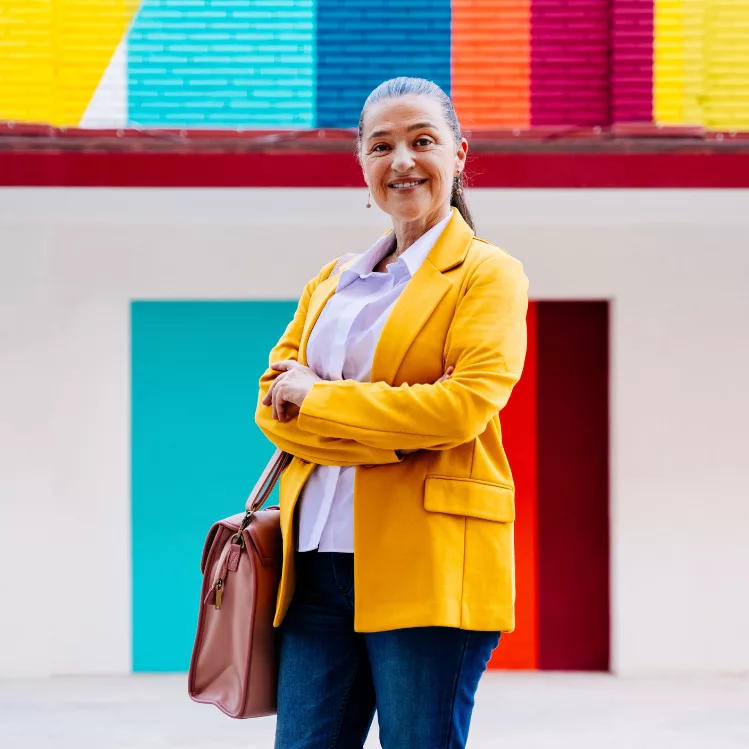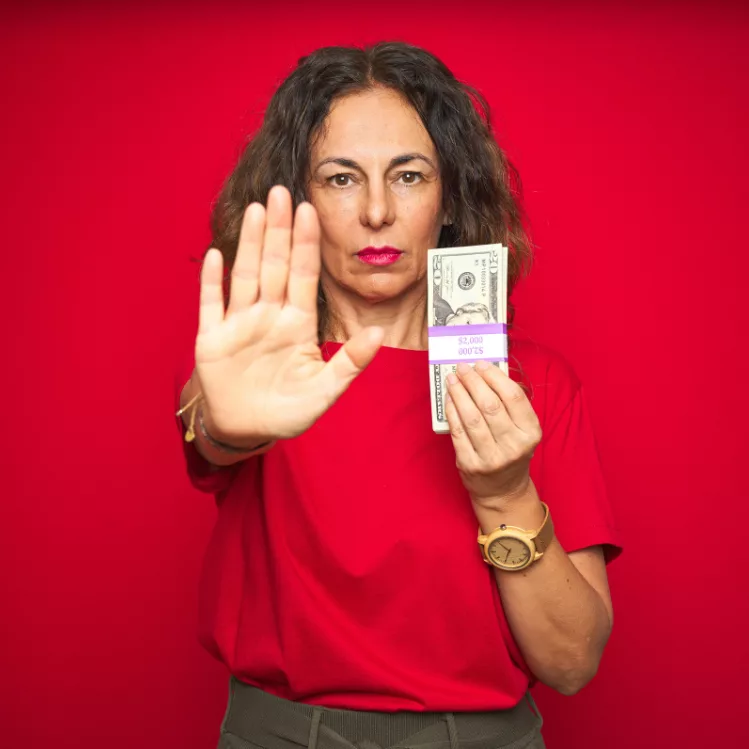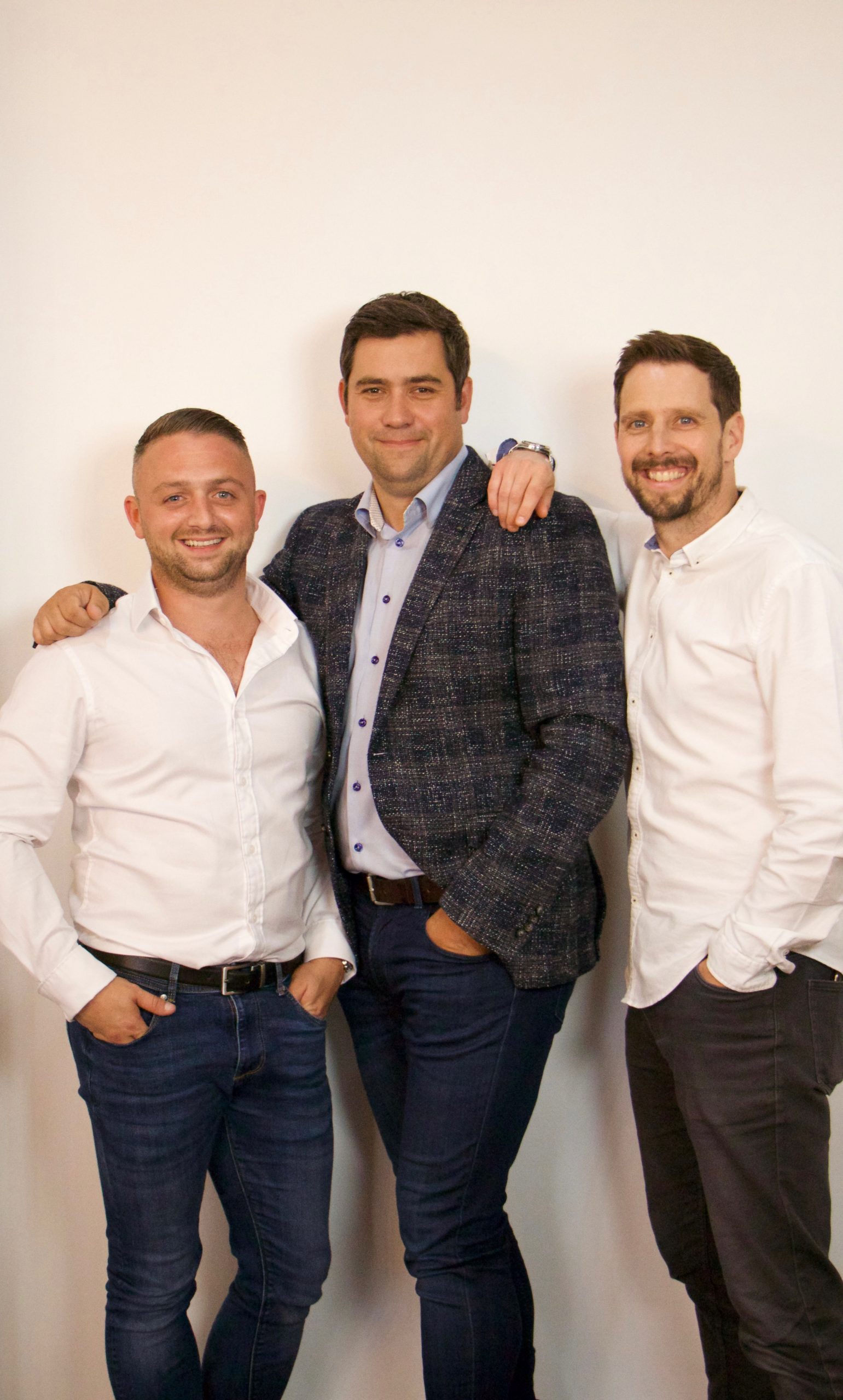
Breakfast with Winners: The UK Trio Who Are Taking Clubhouse by Storm
By Mirela Sula
With phones glued to our hands and the handy mute button just a click away, we all tapped into Clubhouse from the comfort of our homes. However, the men behind Breakfast with Winners have changed the game. I had the honour of visiting the Winners Club’s very own studio and was welcomed by Paul Abercrombie, Ashley Shipman, and James Burtt as I took the hot seat and joined them on their daily morning Clubhouse. Having never been interviewed before, I took the opportunity to hear the ups and downs of their Clubhouse success.
Let’s start from the beginning – Paul, how did you turn this little spark into something viral on the Clubhouse platform?
Paul: Obviously, it all started with Clubhouse. We all woke up at a certain point in December, and everybody’s telling us that we’ve got to use this social media app, and so we did. We downloaded the app and cluelessly went onto Clubhouse and slowly learnt how to use it. There was a very different vibe in Clubhouse to what’s actually there now, and I think, selfishly, we were all trying to carve our own niche and find our own space within Clubhouse. None of us were present when Instagram or Facebook was formed, if we were aware of the potential of these social media platforms, we would have experienced explosive growth like many others. We were early and had the opportunity to utilise that, and that was the driving force at the start.
You describe yourself as not being a ‘social media person’. What led you to download the app?
Paul: I came on to Clubhouse on the 26th of December, Boxing Day in the UK, after seeing a message from a friend when I woke up. At first, I didn’t really know what it was. I’m the most private person, and James and Ashley can vouch for this, my whole career had been in the corporate world and never in the world of social media. I didn’t need to use social media for my business, so all of a sudden I was in a world where people are marketing their businesses and services via social media. I was already slightly on that journey because I had a podcast, and I was trying to carve my own space within business mentoring and coaching. I think I selfishly went onto Clubhouse hoping to accelerate that journey.
It became very relevant in the Clubhouse scene that you first needed to speak on the right stage and secondly, give great value, similar to seminars in the real world, to gain a following – this is how Clubhouse worked. There were days where we got thousands of followers in a day. The first few weeks, we were all there for selfish reasons – we were just trying to increase our own following and generate leads for our own businesses. There are a lot of egos in Clubhouse, a bit like a school playground, where you can find cliques of people. We are not sure how it happened, but we ended up creating a group of us from the UK. We all had similar values and had an understanding of what we believed Clubhouse was, and we thought, well, we can all help each other.
After a couple of months, I woke up and realised that I had no idea what I was doing on Clubhouse. I didn’t have a business that benefits from leads from social media, and here I was spending so much time on this app. I found myself walking around my house with earphones in ignoring the kids, doing the dishes with earphones in just because of this urge to be part of every single room that was going on. I called James and told him I have a podcast studio, and you’re a self-declared podcast king – would you like to come and use it and help me launch other people’s podcasts? So James came and had a look at the podcast studio, and we had a great conversation – if you spend too much time around James, he’ll end up interviewing you. Around the same time, Ashley had also come to visit the podcast studio, and after having conversations with them independently, I felt we all had very similar values.
Would you say you brought the three of you together?
Paul: Within reason, I felt like we all had a similar connection and morals when it came to Clubhouse. Many people on there were selling snake oil and were using the stage to sell to others in the room – they’ll come in and use all of the tactics and selling techniques that they use in conferences, and we realised that was not us. I phoned both of them up independently and said, ‘I’m spending all this time on Clubhouse for what?’ It was taking over my life to some extent – I felt myself almost getting a little bit addicted to it. I needed to discover a purpose for my time on Clubhouse. We all recognised the community that we had built had value, something special was happening as opposed to just people showing up and being part of a social media following, so we tried to take this to the next level. What can we do to try and elevate what we are doing? At that point, it wasn’t about community building, it was about distinguishing ourselves from everybody else. That’s where the podcast studio came in. I said I’ve got the podcast studio, why don’t we try and set up some light and some cameras, and one morning, We just announced that we are doing a live stream and that you can now view the studio. It was all about upping the level of production.
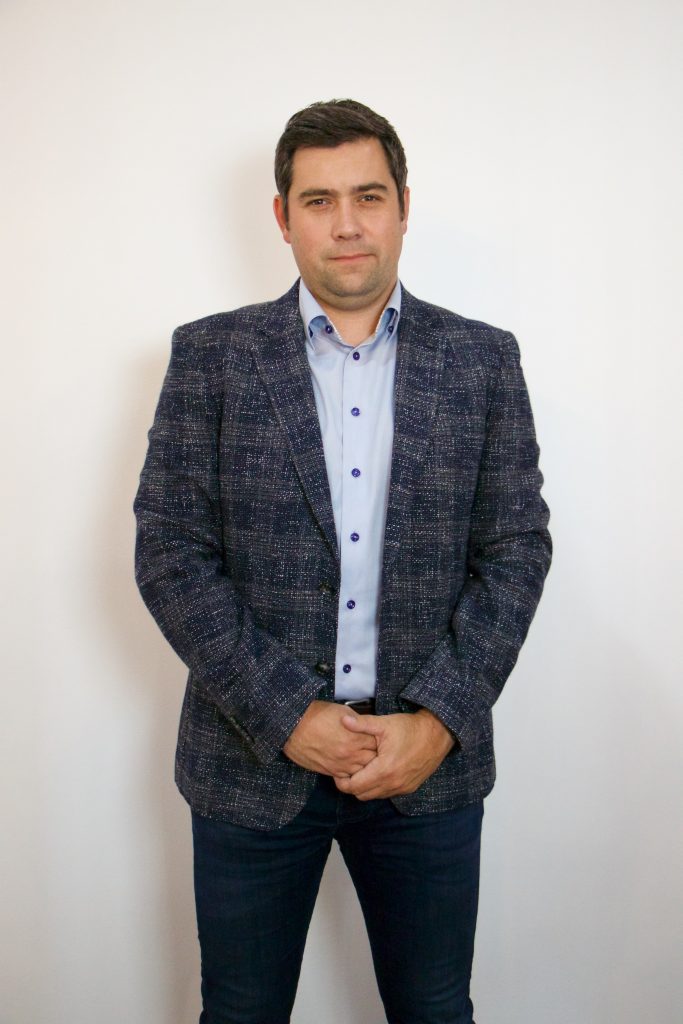
You mentioned behind the scenes that you were just getting ready to retire yourself, have those plans gone out of the window?
Paul: Not really – right now, we’re creating our own workload. We’re trying to understand our customer’s journey. At the end of the day, our customers are people that are in our community. We now have a model – we cannot do this for free forever, and we’ve dedicated so much of our time already.
Many people now recognise you as an influencer on the Clubhouse platform, and many people are loyal to your rooms. They have heard you speak and heard your story, but many of our readers don’t know your story. Who was Paul before you made your mark on Clubhouse?
Paul: I started as a kid from a council estate, and then joined the London fire brigade and spent nine years in that career and then realised it wasn’t for me. I started my own business and have been on a business journey for 16 years of making mistakes, but not making them twice, and I’ve been involved in 12 businesses, now 13 with what we’re doing with Clubhouse. Just like any entrepreneur, I made a lot of mistakes and learnt from them. As I said, I was half semi-retired and on a personal development journey myself when I realised that the path I was on in life as an entrepreneur wasn’t the path I wanted to be on. If you stay in business for long enough, you will reach a point where you feel a lack of fulfilment. My hands were tired of my own business. I felt like I had handcuffs on and couldn’t live a certain life because of my business. I was extremely busy and had no time, which destroyed family relationships, and I did things that a stereotypical male entrepreneur would do. I had enough self-awareness to realise that, and I guess I was on the same personal development journey that many of us experience – we all consume the same content. Like many of us in this community, we realise that we want to help others on that journey, and for me, all of my most painful moments in life came from business mistakes. I decided to help others avoid those mistakes by helping them scale, change or grow their businesses in the right way.
Then the Winners Club came along, and my path’s been diverted a little bit because my own business has been put to one side as we try to evolve on Clubhouse. We must evolve on Clubhouse to stay relevant – social media is evolving quickly and making those changes and staying ahead is vital. There are so many people on Clubhouse who would love to see you fail. People are making active efforts to try and steal the audience, take them to other rooms and get them into their business funnels, and that’s the difference with us – there is no funnel. There is no mechanism that we’ve created to monetize the community. The model that we’ve come up with will not make us millionaires – it’s a low cost, low barrier way in which we can share the information that we create on Clubhouse to sustain the ability for us to continue to do what we’re doing and that’s why it has worked. We’re not selling to people, instead, we’re trying to evolve, change and serve the community so we can give them better access to the information we share in our everyday conversations.
James, what did your career look like before Clubhouse?
James: I felt the same as Paul. I sat there wondering why I was spending all this time on this platform. I joined on 30th December after getting an invite from a client of mine, and she was like, you should definitely be on this because it’s an audio platform, sort of like radio and podcast. On the 7th of January, I put a podcast episode out saying ‘Why Clubhouse could be the biggest waste of time of 2021… Maybe’ – I’m glad I gave myself that wiggle room because I was completely wrong. I’ve been in the broadcasting and PR radio game for 15 years, and I have been given the title of podcast king, so I automatically thought, I should probably be on this. I hated it to start with, and it wasn’t until I locked eyes across a crowded room with Ashley Shipman and our bromance formed that I realised I like this guy. He’s not here selling snake oil, he’s just honest. Ashley’s a proper old-school salesman and invited me to have a call, I had no idea what it was about, but I thought, let’s just have a chat. We’re very like-minded, and we both knew there was a good opportunity here. I was the opposite of Paul – he was going for the semi-retirement plan with no plan of being busier, whereas I was growing my business, and I didn’t have time to be busy with anything else. So I set myself a challenge, if I don’t make a thousand pounds off Clubhouse in 10 days, I’m going to leave. It was an arbitrary figure, it wasn’t about having an aspirational goal, it was about whether I was wasting my time on this platform. If you give value, you become valued within that community. I’ve got a podcast agency, and I was seeing the leads come in, and I knew I had to convert some of these leads. In about three days, I had made six grand directly through Clubhouse. It wasn’t trickle-down revenue, it was cash in the bank. I remember saying to my wife, ‘I know I’m spending a lot of time on this platform, but it is going to be the biggest driver of the podcast agency.’ By the third week, I could see the difference. I was around in the PR games back in 2021, and I was already working with the likes of BMW, Nando’s, Thomas Cook, and Nissan when influencer marketing came around, and I saw the call to action that it was driving at the time. I missed that boat because I wasn’t an influencer, and I’m still not now, but I thought this can give us the same power as influencers have got within influencer marketing in 2012.
I had this room that I called the Daily Habits of High Performance, with the plans of making it a daily room, and after the first three, I knew I couldn’t do it every day, and I thought I’ll do this once a week. Everyone was talking about very specific niche topics from marketing, sales, social media to Instagram, but no one was talking about mindset. At the start, we had Jessie Itzler, John Lee Dumas, Lewis Howes, Grant Cardone, Paris Hilton, Tyreese, and all these megastar celebrities and influencers floating about the platforms. I thought, let’s keep it simple and talk about daily habits and the second week we ran it, it started on Sunday and ran till Thursday – it ran for five days non-stop and at certain points, we would have fifteen hundred people in the room together at the same time, and it probably went up to about three and a half thousand people at any one time.
That’s where the gang, the group of 6 that Paul mentioned before, had come together. We couldn’t run these rooms by ourselves. Ashley was running Breakfast with Winners by himself every day for three hours a day, and he would let us know if he had a meeting or a sales call, and one of us would take over for half an hour, and that’s how it evolved. So the 6 of us decided we’d run a show each day, and everyone else can support us if they need to. We all had our different niches, branding, podcasting, scaling, etc. As Paul mentioned, by being in that group, we could see who had an alignment of values, you could see who was there to really add value and who is there to line their own pockets in the short term. There’s nothing wrong with being intentional about making money in business, your outcome as a business is to make money, if you’re not in it to make money then what are you in business for. We realised quite early on that there’s a massive opportunity here – if we go against the tide with everyone else who found a gap, plugged the gap, and sold a 50 quid course, we could have had a short-term win, but we wanted to create something bigger.
You have experience in branding and working with corporates – did your previous experience help you with this venture?
James: 100%, by week three, I knew this was influencer marketing in 2012 all over again. In the beginning, you would do an hour on Clubhouse and you get 100 followers per hour. I’ll then DM every single person, and then 50% of them would come across your Instagram, and then you’d engage with 50% of them. Within a marketing agency or a content agency model, you only need to land one of those people per day for a couple of grand your way to the races. I remember seeing influencer marketers and thought ‘what the hell is this, this will never take off,’ and then it did, it just blew up. I had the same feeling about this.
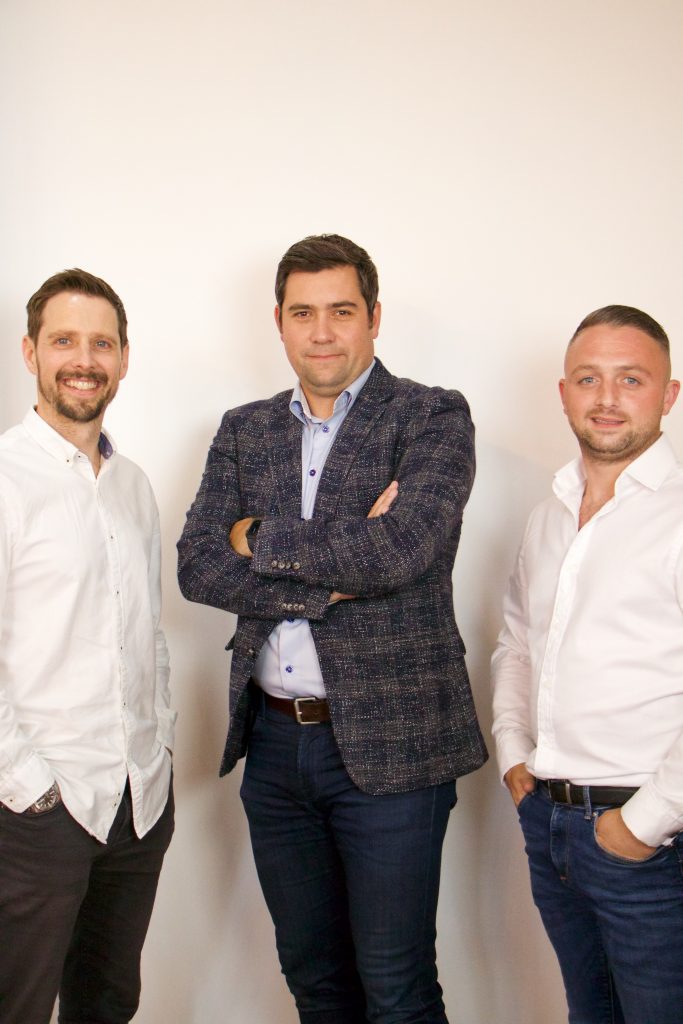
Ashley, it feels like none of you knew where Clubhouse was going to take you. Do you think that this has been a divine plan?
Ashley: My track record of being an entrepreneur has been a rollercoaster, and all I wanted to do was achieve success now – I wanted it now and wanted to achieve it now. I used to always get told by people further down the line to trust the process, and early on, I was trying to find the right people to click with, because as we’ve said you could see some people have their visions aligned with what I had in mind. Connecting with Paul and James and moving forward with them worked perfectly. They’ve got experience in their fields, and we stay in our lanes. We worked together as a collective, but no one knew what was going on with Clubhouse. We were all testing it, and I was enjoying it every single day, but what I’m doing right now is trusting this process.
My journey has been up and down. I’ve never had support, and anyone in business can understand the different parts of the journey and trying to get it right. All I ever did was try to surround myself with the right people. When I joined Clubhouse and saw all these big names like Paris Hilton and Grant Cardone, I was in awe. I aligned with the right people and was constantly inspired. Paul would tell me to take it slow, and James would say let’s get it right – we all bring a different skill set to the table.
What was your background before Clubhouse?
I started as a post boy for about three weeks, then went to a sales and marketing director, and within four years, I was running a team and managing a company. I scaled the company very quickly, and this wasn’t on my own. I had a really big reality check when I went on my own. I thought I knew the business, but I didn’t, I just had the right support around me. I’ve tried loads of things, I’ve failed a lot of the time but, entrepreneurship is all about failure, failure, failure, and less and less of it until you succeed. Sales and marketing cut me in half. It’s more of the marketing conversion aspect that cut me in half, and sometimes I get called this salesman or that salesman. When I joined Clubhouse in January, I started to see a lot of people being sold snake oil, and I’ve been one of them as well. That’s very important when you’re building a community – you’re going to be responsible and get the blame for people’s purchases from people I was putting on stage. When they step onto the stage, they’re selling, which means I’m condoning what they are selling. Like James said, if you’re not in business to make money, then why are you there. People were contacting me for numbers, and after that, I cut it. From there, I created a community where entrepreneurs could come and get the support they needed. If I had Clubhouse four or five years ago, I would have made fewer mistakes and I would have gone further in my journey.
James: I called Ashley the king of Clubhouse on a podcast, and it kind of stuck, but then the perception became reality, and Ash became the go-to guy in the UK if you wanted to sell anything. If people wanted to have a big room, they would be tagging Ashley into every room that was going in the UK.
You are in the field of branding and marketing and probably have experienced exposure, but how does it feel to be known within the Clubhouse community?
James: I think you’ve got to remember that you’re only famous on one app on your phone, that’s it. If you let it go to your head beyond that, you get yourself in trouble quite quickly. It wasn’t really about the fame – it’s not about having the biggest rooms, it’s about having the most impact, and that’s what it comes down to.
Paul: I don’t even see us as popular. We see ourselves as the leaders of the group – we set the tone, we set the environment, we set the way that we want it to be done in the community, and then we hope that others follow. When the rooms start to go off track a little bit, one of us will interject and bring the conversation back into line. When the rooms have maybe been a bit dry, and the conversation has not been great for a few days, one of us will actively grab hold of it and take the room for an hour and give it some spark and some energy. I see us as the drivers of the community, but I certainly wouldn’t say I feel like we’re popular in any way. I think we’ve been we’ve been very lucky to realise that there’s an opportunity to galvanize the community and that’s what we’ve done. We all have our own skill sets.
If you wanted to form a business tomorrow, who are the people that you want? You’d want somebody that’s got their eye on their branding or understands how to build a brand first, you’d want the person that’s very social that galvanizes others and galvanizes the community, then you’d want some somebody that’s tinkering in the background coming up with ways to change, improve and make stuff happen and we’ve got all three of those personalities, so we were very lucky to find that. It would have been easy to say, ‘let’s start a mastermind program and charge everybody 5000 pounds to be part of it’ or ‘let’s start an online course,’ and we had those conversations, we were thinking can we do an online course, should we do a mastermind because we could have. We could have made a lot of money from the community, but they probably wouldn’t be there now.
Would you say your priority is to keep the community together, to share values, and provide the right service that they need?
James: The power is that we’ve empowered other people. As Paul mentioned in the beginning, Clubhouse was like a playground – there were different popular groups, and you couldn’t get into their room, or you couldn’t get onto their stage. It was almost like the moderator’s green mark was something to chase after.
Paul: We realised that we had a channel. There are people on Clubhouse that see it as a room to sell and bring people into their funnel and create a driver for a new lead. There’s nothing wrong with that. It’s the same system on Facebook and Instagram, and Clubhouse is another version. We see ourselves as a channel, and our vision is to create a space where others can also operate their own rooms within the Winners Club.
You have done something unique, I haven’t seen anybody else in the whole Clubhouse platform create a studio setup. How did this idea of building a real studio come about?
Ashley: I think it was when my phone blew up once with the BBC news, and Heart radio also covered the show. Someone was on live radio and said they were tuned into a show called Breakfast with Winners on Clubhouse, and they invited me to speak. I then hit BBC and also a German tech blog. It all happened in a very short space of time, and we needed to make sure that we are really growing this in the right way. That’s why it works so well because it’s a safe space and definitely a space I wish I had earlier on in my journey.
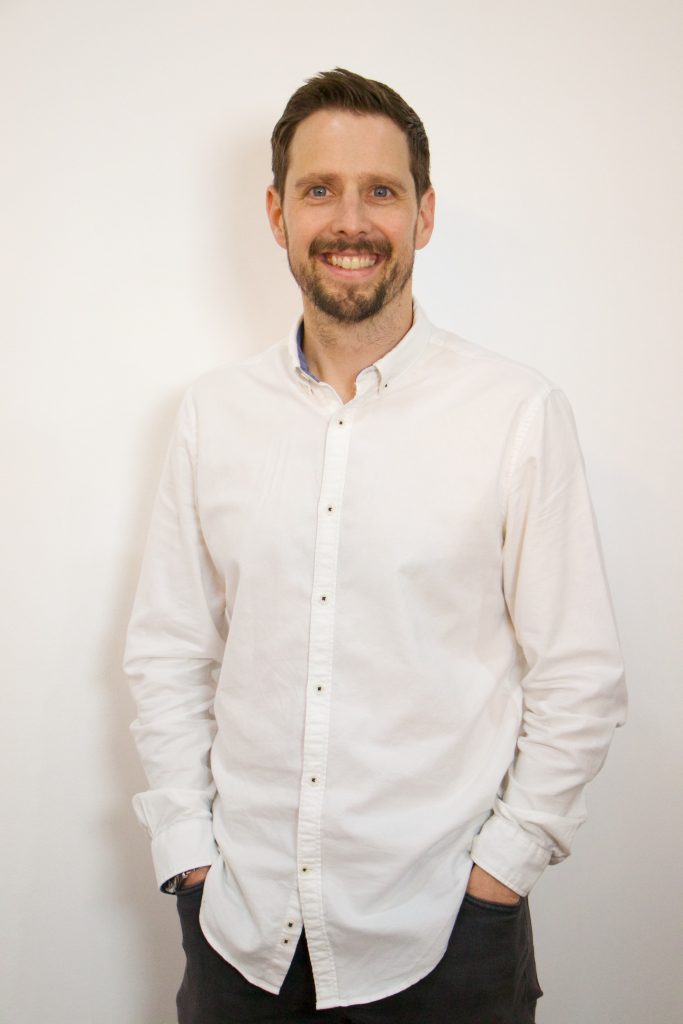
How many messages do you receive a day and how do you manage it?
Ashley: Hundreds, I think I’ve had around six thousand since January. At first, it was the most overwhelming thing in the world mentally. When it all died down, I got someone to help me with my inbox. Phenomenal people were asking to connect with me, and I had no idea. Tim Storey, Oprah Winfrey’s life coach, had called me, and I had no idea who he was. Billionaires and business icons have connected me with, and the thought that I spoke to someone that I have followed for a while is phenomenal. I said to Tim Storey, ‘why are you connecting with me?’ – I’m used to asking uncomfortable questions. He said, ‘I get about 800 messages a day, and you just don’t want anything from me.’ He then flipped the question and asked why I was connecting with him, and I just said, ‘I’d like to have you as a friend and have you in my network,’ and he said ‘ you’re the first-ever person that said that to me’.
Paul: I think other people have seen that we’ve got a space that is beneficial because everybody’s in Clubhouse or the world of social media for a reason. They’re either consumers or their producers. Most of the people we deal with are producers and this is exactly the vision that we had early on. We can be the destination for these people to come to if they were going to launch a book, they would do a book tour and visit radio stations – Capital FM, Heart Radio, Kiss FM, etc. Why can’t Clubhouse be one of those destinations? We can be that space for people. It gives us content, and it gives us the ability to get access to these guests. People can see that there is a community there that they can reach. We partnered indirectly with the UK government for a marketing agency, and we were the first people to bring Boris Johnson onto Clubhouse because we had the community.
You all have a family; how do you balance it all?
Paul: At the start, you’d want to be on Clubhouse 24 hours a day, leaving your phone on and going to sleep, coming back, and you’ll still be in the room – it’s not like that now. I’m only on Clubhouse in our own rooms, and I rarely go into anybody else’s rooms. If there’s a Winners Club activity happening on Clubhouse, I’ll be there, other than that I’m offline, doing my own things. We’re all a little bit like that now but for the first few months, it was very different.
Do you see this show somewhere like BBC or a radio station? Or someone may be interested in buying it?
Paul: I don’t think so because we’ve got this – we’re our own producers, and nobody’s coming in and telling us what to do.
James: Potentially, someone might want to buy it, but again the power is in the fact that we are in control of our own destiny. For example, I’m very much a failed radio presenter, and my dream was to go and work on Radio One or one of the big radio stations. You’re told you’ve got 43 minutes to fill, you’ve also got the adverts, you’ve got the weather, you’ve got the news, you’ve got the travel, you’ve got sponsorship reads, etc. It sounds really exciting, but with Clubhouse we can do whatever we want to do. This morning we ended up talking about the ability to scale globally, on Sunday we’ll talk about transcendental meditation, we’ll work with the biggest marketing agencies on the planet, we have the CEO of Iceland foods come and join us on Thursday and does the Chris Evans breakfast show on Friday, we got Tim Storey coming for the fourth time because of the power of our community. There’s no need for it to go anywhere else, and that puts you in a really strong position because when you don’t need anybody else then everybody comes knocking at your door.
Ashley: It didn’t start like that, at the beginning, we were all knocking on each other’s doors. Quite early on, I turned around I said, this is a no-pitch room. The whole mentality shifted because they couldn’t see the value there. I was receiving screenshots of people trying to sync the show, so when I had support from Paul and James, it was an alignment.
So what does the future have in store for you?
Paul: We are content creators, we are creating content, and we’re giving others the space to create their content, and they’re receiving leads, and their business models are thriving by us giving them the space to create content so effectively. If you look at that in old school terms, we are the producers of content which would be either radio shows, TV shows, documentaries, etc. We are by default the producers of that type of content now, so we will continue to give people the space and the platform to produce content that can change other people’s lives. Five years ago, we would not be openly on microphones having some of the conversations that we are openly having today. When we’re in each other’s company, we’re very open and vulnerable about the way we share, and we encourage others to also be open and vulnerable.
Three men – was that an accident?
Paul: You raise a good point, and it’s something that we’re very consciously aware of now. There probably is some element of unconscious bias between the three of us because you attract people that you’re similar to and share similar values. We were all attracted to each other for a reason. We try to shape our community in a way that works for everybody, I believe we have a very inclusive feel to what we do, and we have people from all parts of the world, men, women, all different ethnic backgrounds, and we embrace that. On a couple of occasions, we’ve been told that the first two lines of all of the moderators are white males, and there’s been no intention of creating that environment at all. If you speak to any of the females that are really in our community, the likes of Lucienne, Georgia, we fully support what they’re trying to do, and we generally are advocates for the content that they are creating.
We have one value that is that others create value in the community, so if you come up as a speaker and create value, you are welcome to stay there for as long as we’re in existence, and that is generally how we work, but when people don’t come and do that, or they come with another ulterior motive then we can recognize that pretty quickly. James likes to press the move to audience button. In the last two years, the word unconscious bias has come to the forefront, and we wouldn’t be having this conversation two years ago, so we are aware of it, but we would say that we’ve been as inclusive as we could be. When we formed the partnership, we didn’t know what we were doing or where it was going to end up. When we all actually sat down together and said, let’s do something, we were probably still thinking in the back of our head this will drive leads for my business.
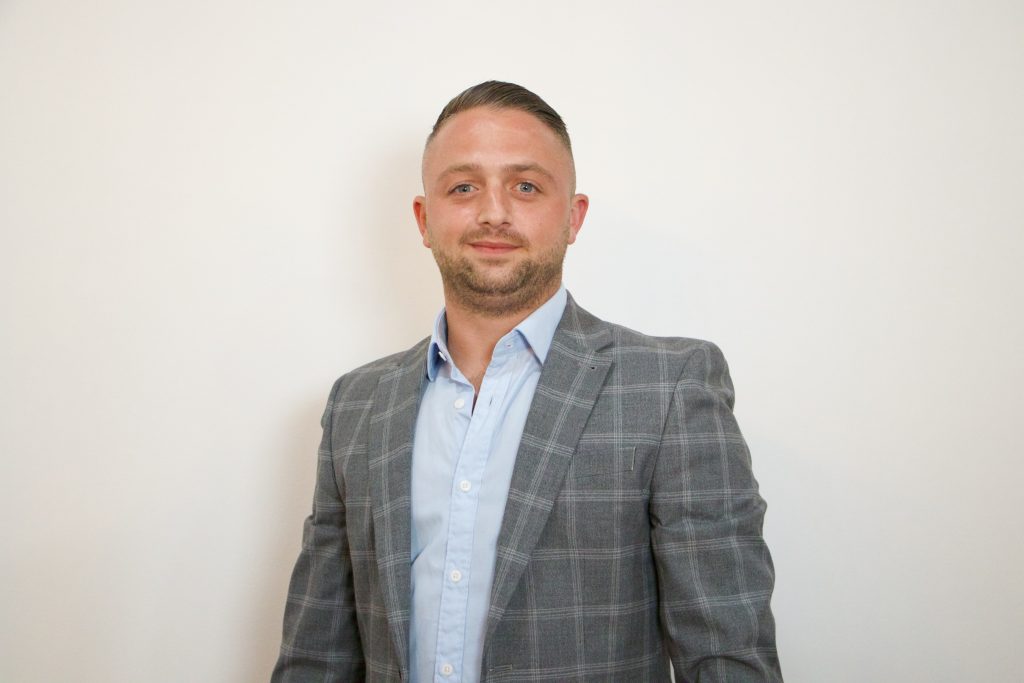
Do you think you would have had this impact separately?
Paul: I reckon James would be doing a Clubhouse room once a week generating leads to his podcast. Ashley would probably have been bought into someone else’s group and would be doing a room selling courses or training every day, and I wouldn’t be on Clubhouse. I would have carried on sitting in my lonely room studio recording my podcast once a week and putting it out there thinking that people cared about it.
James: What we’ve created here is the epitome of the whole being more than the sum of its parts. This is what Napoleon Hill talks about in the 50s about the power of a mastermind and collective wisdom, where there’s almost like a fourth brain in the room and the three of us together is the epitome of that. Paul wants everything systemized and processed with all the nuts and bolts in place, Ash wants to run at a thousand miles an hour, and I’m probably the one who’s more protective about the brand. Everyone draws the best out of each other.
We’ve just launched an app with a suite of tools that our community can benefit from. We’ve got a free version of our app where people can get some access to Winners Club. We realised some tools are missing from Clubhouse, and we need some ways for the moderators to communicate with others and the chat function to work a bit better, so we’ve put them into our app. Every single day, we create three hours of content that people can actually benefit from, so we’ve come up with a format to give people access to that information in the premium version. People can get replays to every one of our clubhouse rooms, we will summarize the content, and then we’ll extract the best bits or what we call mic drop moments.
I have franchised my club in other countries – have you had people asking you to create a club in Paris, Berlin, Amsterdam, etc.?
Ashley: I have, but we like to watch people before we bring them in. We like to see their brand loyalty, because if there’s no brand loyalty to the Winners Club and they just want to use the audience then they’re not going to get brought in.
How do you qualify them?
Paul: We’ve just come up with an ascension plan of the steps that people can take because the end goal is that somebody can host their own room under the Winners Club brand within the Winners Club room and have their own show on our channel effectively. We’ve tried to document out those steps – initially, it’s somebody coming into the room and giving value on stage, showing up occasionally, coming in with the ethos off being there to help and share value, then the next step is that they are made a moderator, then we approach them asking them to host a room within the winners club.
What advice would you give to someone hoping to create their own room on Clubhouse?
Ashley: I would say collaboration – go with intention, participate and support other people in their rooms if you’re looking to grow and network. If you’re not that sort of person and you want to grow on the platform, then make sure you are putting your hand up in the audience and asking good questions. Also, make sure you’re following the rules of the room, understand the rules and the culture, and follow that. Make sure you reach out and take the conversation further than Clubhouse.
Paul: Authenticity. Be authentic and be value-driven. I’ve shared stuff on Clubhouse that I’ve never shared anywhere else, and the response from that is overwhelming. Be authentic and value-driven, and the rest will fall into place.
James: Give value first, and then you will be valued. Too many people are looking to get the sale first. Be intentional with your time – you can see what it’s there for and know exactly why you are in a room. To scale your own rooms or your own collaborations, surround yourself around great people because there’s a lot of valuable people on that platform. Connect with people that line up with your overall moral compass and where you want to go as a business.
Where do you see yourself in five years?
Ashley: I hope that the Winners Club app is a globally recognised hub with valuable educational, tactical and effective advice.
James: I imagine myself in five years sitting on Ashley Shipman’s yacht bobbing around in the Adriatic Sea whilst he’s feeding me grapes. I see this being the number one community for tangible actionable content on the planet, that’s accessible to everybody. From a business and behind-the-scenes perspective, I see the Winners Club brought by a bigger conglomerate.
Paul: I hope we touch millions of people, and I hope we change the path of their businesses to millions of people. I think by doing that, the rest will fall into place. I generally have that faith. If you do the right thing most of the time, the rest falls into place, whether that’s the law of attraction or not. I don’t necessarily believe in that theory – maybe it’s a bit too cynical for me. We are all on the same path of doing the right thing, we want to protect the community and give them information that will serve them. Our radar is up for anything that doesn’t serve the people. That’s our mindset, to protect the community from the moment we wake up in the morning to the moment we come off Clubhouse.
Watch the full interview here:




